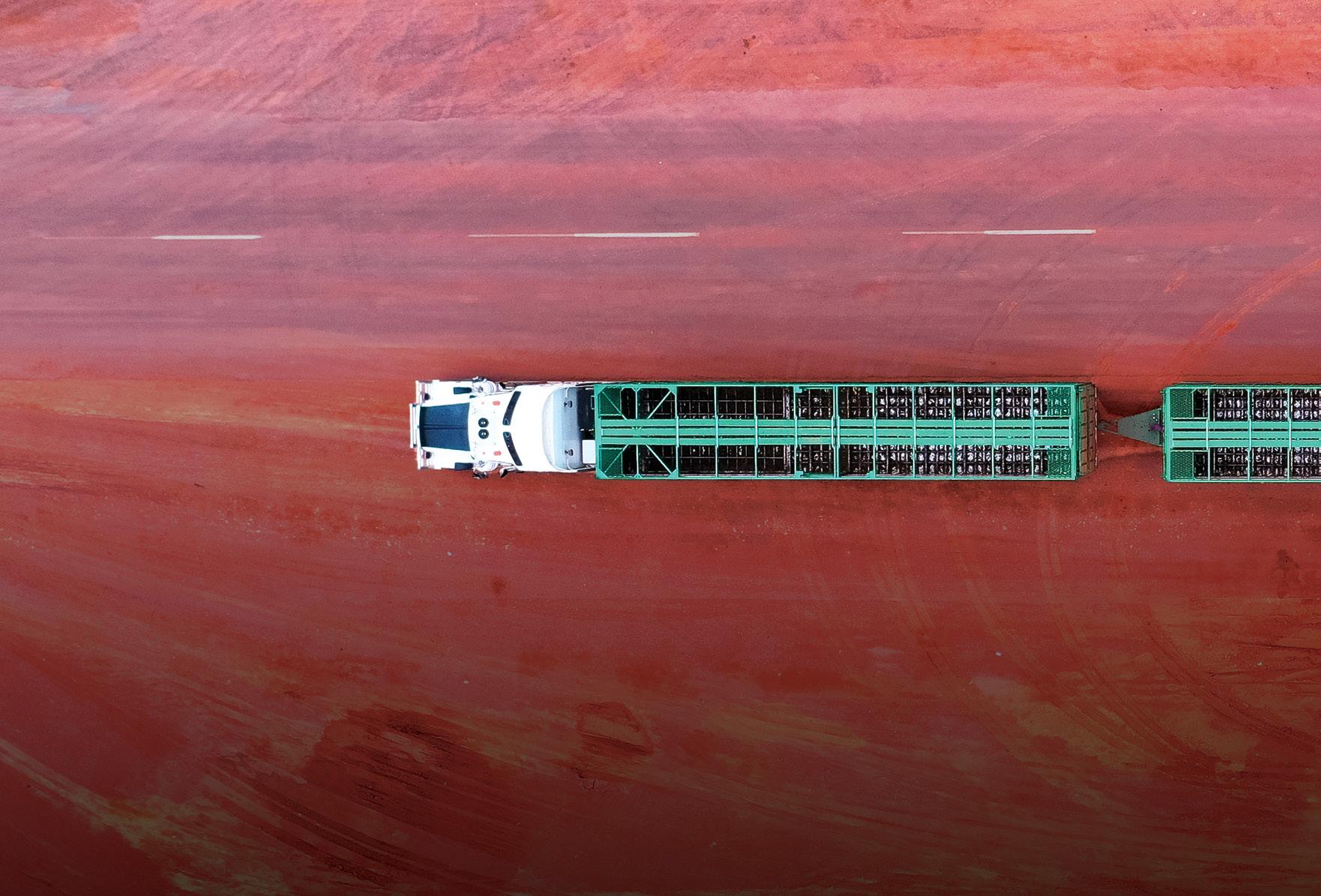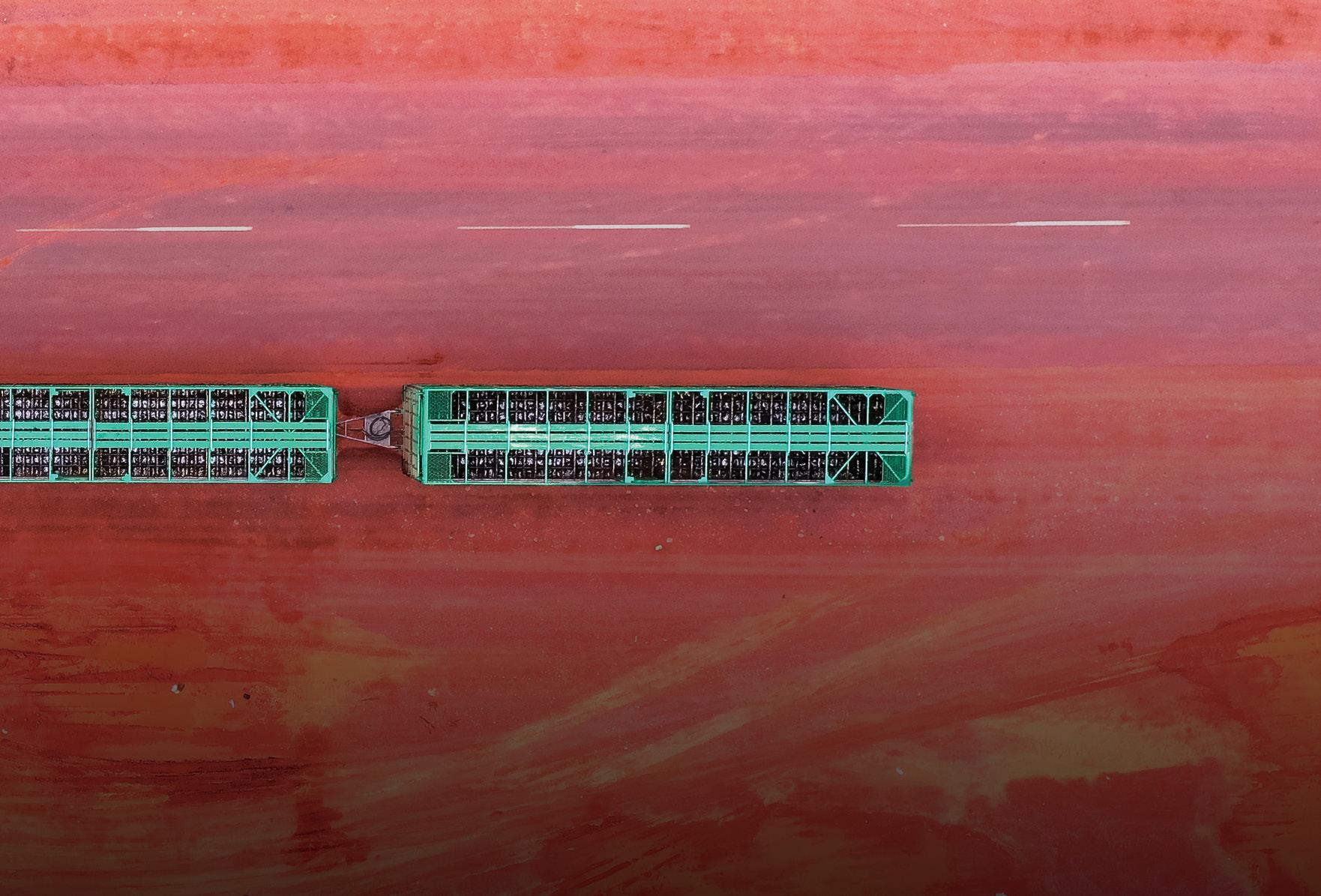Australia's Specialist insurance provider

As Australia’s leading specialist insurance provider in transport and logistics, NTI’s range of products and services goes beyond traditional insurance. We’re committed to delivering our purpose: To keep Australian industry moving towards a safer and more sustainable future.
This involves helping customers and partners deal with today’s challenges through sharing expert knowledge and content, in collaboration with industry experts and authorities.
We hope this ‘Trucking Basics’ book will be a useful guide for you on basic truck information and terminology, and that it will help supplement your service and advice to clients, no matter what role you play in supporting the industry.

TRUCK NAMING
An introduction to how the different elements of trucks are named.
TRUCK NAMING TRUCKING BASICS
Three independent (but related) fields
TRUCK NAMING TRUCKING BASICS
1. BODY TYPE
Describes the functional element of the item, it may be a space to hold other items or it may be a piece of equipment itself.
TRUCK NAMING TRUCKING BASICS
2. UNIT TYPE
Describes whether the unit is powered or trailing and the arrangement of its axles and couplings.
TRUCK NAMING TRUCKING BASICS
3. COMBINATION TYPE
Describes the arrangement of multiple units and the connections between them.
UNIT TYPES
The basic building blocks of trucking. Knowing unit types enables you to start building a schedule of your client’s insured items.
Driver’s cab
RIGID TRUCK
May have different axle layouts
Has a load or load carrying space
Or different body types
Excludes MPE and some specialist equipment
PRIME MOVER TRUCKING
May have different axle layouts
Or a cab with a bonnet
Does not have a load carrying space
Pin or Ring type coupling
Drawbar
PIG TRAILER
Key Feature
One axle (or group of axles) located near the centre of the load area
May have more axles (but always in one group near the centre)
Or different body types
Does not include dollies
TRUCKING BASICS
DOG TRAILER
Pin or Ring type coupling
Key Feature
Two axle groups (may be one or more axles in each group), one at each end of the trailer, with the front axle group ‘steering’ with the drawbar.
May have more axles (but always in two groups, one at each end)
Or different body types
Does not include dogs made by coupling a converter dolly to a semi trailer. Two regos/VINs = two units
TAG TRAILER TRUCKING BASICS
A semi trailer (in that the front is ‘carried’ by the drawing vehicle) but designed to be drawn behind a rigid truck, not a prime mover.
Key Feature
Ring, Ball or ‘Saucer’ Coupling (to attach onto rigid trucks)
Key Feature
One axle (or group of axles) located at the rear of the trailer
May have more axles (but always in one group offset to the rear)
Or different body types
Does not include semi trailers (e.g. with a fifth wheel coupling)
BASICS
SEMITRAILER TRUCKING
Skid plate and kingpin
May have more axles (but always in one group offset to the rear)
Or different body types
Key Feature
One axle (or group of axles) located at the rear of the trailer
Does include lead trailers (they are a special type of semi trailer)
LEAD TRAILER TRUCKING BASICS
A sub class of semi trailer which can carry the front of another semi trailer.
May have more axles (but always in one group offset to the rear)
Or different body types
One axle (or group of axles) located at the rear of the trailer
May have a sliding body (to allow unloading at a dock or tipping)
BASICS
CONVERTER DOLLY TRUCKING
Pin or Ring type coupling
May have more axles (in fact, single axle dollies are rare)
Connects under the front of a semi trailer. ‘Converting’ it (temporarily) into a dog trailer, hence the name.
Key Feature
No load carrying space. Fifth wheel coupling to attach to a semi trailer.
Or a rigid drawbar
Does not include load sharing dollies
BASICS
LOAD SHARING DOLLY TRUCKING
May have more axles
Skid plate and kingpin
Connects between a heavy haulage trailer and the prime mover to ‘share’ the load, reducing the weight carried by the prime mover
No load carrying space. Fifth wheel coupling to attach to a semi trailer.
And four or eight tyres per axle
Does not include converter dollies
COMBINATION TYPES
While items are insured individually, they’re often operated in combination. Knowing the common terms helps improve customer interactions, especially at claims time.
TRUCKING BASICS
BASIC COMBINATIONS
TRUCKING BASICS
DECODING COMBINATIONS

TRUCK AND DOG
May have different axle layouts or different body types
Commonly used (with tipper bodies) for soil/sand/gravel and removal of demolition waste.
SEMI-TRAILER
May have different axle layouts or different body types
Have access to almost all roads. In the rest of the world they’re the backbone of long haul freight, while in Australia we use them predominantly for short haul.
BASICS
COMMON COMBINATIONS B-DOUBLE
May have different axle layouts or different body types
The backbone of Australia’s long haul freight.
Since the late 1980s have driven the safety and efficiency of Australian road transport.
COMMON COMBINATIONS
May have different axle layouts or different body types
Technically one form of road train. Adding another lead trailer increases productivity while maintaining excellent vehicle dynamics.
TRUCKING BASICS
COMMON COMBINATIONS ROAD TRAIN
Any combination (other than a B-double) with two or more trailers. The largest combinations in the world. Limited to specific routes depending on length and mass.
TRUCK LICENCE CATEGORIES
It is important to know that the driver has the right licence for the truck they’re driving and any trailers they might be pulling.
TRUCKING BASICS TRUCK LICENCE CATEGORIES
LR, MR & HR: You may also tow a trailer with a maximum weight of 9t GVM.
A bus or truck (including a prime mover or a mobile crane) not more than 8t GVM.
A bus or truck (including a prime mover or a mobile crane) over 8t GVM with a maximum of 2 axles.
A bus or truck (including a prime mover or a mobile crane) over 8t GVM with more than 2 axles.
An articulated bus (a bus that can bend in the middle).
A truck (including a prime mover or mobile crane) over 8t GVM with a trailer of more than 9t GVM.
A B double (prime mover towing 2 semitrailers, with 1 semitrailer supported at the front and connected to the other semitrailer.
A road train (motor vehicle, other than a B double, towing 2 or more trailers).
TRUCKING
BASICS
TRUCK LICENCE CATEGORIES
Are there two or more trailers?
Is there a trailer over 9t GTM?
Is the truck/bus over 8t GVM
Does the truck / bus have >2 axles
Is the truck/bus over 4.5t GVM

